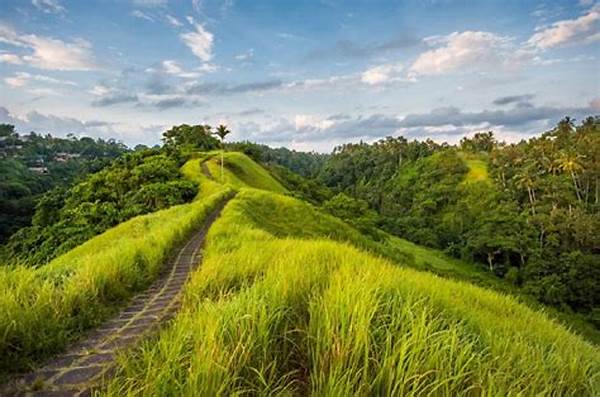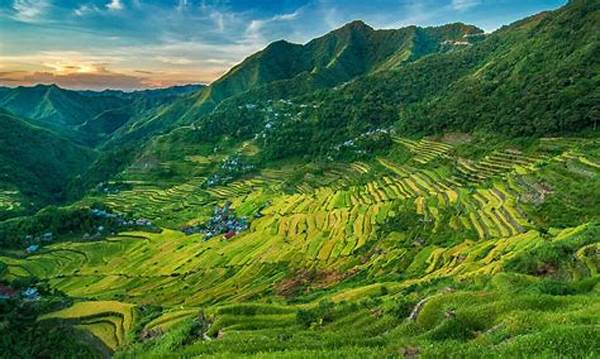Welcome to the sunny, sandy shores of Bali, where the beauty of nature is as abundant as the grains of sand you walk upon. Imagine standing amidst lush green rice terraces that stretch to the horizon, encircled by majestic mountains that seem to touch the sky. It’s not a dream; it’s Bali! Known worldwide for its tropical appeal, Bali is not just an idyllic getaway, but a hub for dynamic and sustainable nature tourism. The development of nature tourism in Bali is not just a trend but a passionate mission to preserve its natural beauty while offering unforgettable experiences.
Read More : Adventure In Etosha National Park In Namibia
Friends, buckle up because this isn’t your everyday run-of-the-mill travel article. This is a tale woven with vibrant threads of culture, adventure, and nature, promising not just to inform but to entertain. Dive into stories of local guides who turned legends and ancient jungles into living classrooms. Laugh and learn as we explore the “hippie” inventiveness that Bali brings to the table—capturing hearts with its unique selling approach to eco-conscious tourism. Whether you’re a blogger, marketer, or just a curious wanderer, you’re in for an exclusive experience. Are you ready to embark on this journey of wonder and humor? Let’s dive in further!
Unveiling the Green Magic
The Rise of Eco-Conscious Travel
The development of nature tourism in Bali is a fascinating testament to the island’s commitment to environmental preservation and sustainable economic growth. Over the last decade, Bali has seen an exponential rise in eco-conscious travel enthusiasts. Recent statistics from the Bali Tourism Board reveal a 25% annual increase in tourists specifically seeking eco-friendly activities. Attractions such as the Sacred Monkey Forest and the ecotourism village of Tenganan have become must-visit destinations, highlighting Bali’s natural allure.
Tour operators in Bali have cleverly adapted to this demand by creating tours that weave tales of Balinese culture with nature conservation. Whether it’s a yoga retreat amidst the Ubud jungles or a cliffside trek along the Bukit Peninsula, these experiences are not only thrilling but also educational. Just as a Balinese gamelan orchestra masterfully orchestrates its symphonies, Bali orchestrates its nature tourism with precision and creativity, appealing to both the rational traveler and the one chasing emotions.
The Economic Impact
The transition towards sustainable tourism in Bali has also spurred economic growth. Many small businesses have flourished, offering exclusive services like eco-friendly accommodations and organic restaurants. According to a 2022 study conducted by the Global Tourism Institute, the contribution of nature tourism to Bali’s GDP has doubled in five years, projecting further growth. This surge isn’t merely a profit-driven endeavor but a holistic strategy ensuring long-term community sustenance. The local economy benefits when tourists stay in boutique eco-lodges, dine at farm-to-table restaurants, and purchase hand-crafted goods from local artisans.
Community Involvement and Storytelling
A critical component of the development of nature tourism in Bali is the active involvement of local communities. Balinese people, renowned for their warm hospitality, play an instrumental role in providing authentic experiences. Take, for instance, Nyoman, a local guide who shares captivating stories about his ancestors’ connection with the land during trekking escapades through the rice fields of Jatiluwih. His narrative magically transforms a simple walk into a profound journey through time. Such personal anecdotes embellish the excursions, making them both informative and deeply personal.
The Future of Sustainable Tourism in Bali
Challenges and Opportunities
Moving forward, the sustainability of Bali’s nature tourism hinges on addressing crucial challenges—overcrowding, waste management, and maintaining cultural integrity. Collaborative efforts between the government, local businesses, and international environmental organizations are imperative. These bodies are continuously working on research-driven strategies to balance tourist numbers with site preservation through technology-enabled visitor caps and waste management systems.
Key Areas for Growth
1. Infrastructure Development: Continued investments in eco-friendly accommodations and transport options.
Read More : Affordable Kayaking Rentals At Nature Tourism Park Mangrove Angke Kapuk Jakarta
2. Technological Integration: Utilizing smart technology for crowd control and resource management.
3. Cultural Preservation: Ensuring that tourism does not dilute traditional Balinese customs.
Environmental Education and Awareness
Enhancing visitor knowledge through environmental education programs will further bolster Bali’s position as a leader in sustainable tourism. Programs that offer insights into local wildlife conservation efforts or sustainable farming practices can engage tourists on deeper levels. Educational tours led by passionate experts can turn a holiday adventure into an enlightening journey that compels visitors to adopt eco-friendly practices in their own lives.
Points of Development in Nature Tourism
Conclusion
The development of nature tourism in Bali is an intricate tapestry of tradition, innovation, and sustainability. Beyond the stunning vistas and spirited cultural displays, it is the island’s strategic shift towards environmentally and socially responsible tourism that captivates the world. Each step taken towards a more sustainable future is both a celebration of Bali’s natural bounty and a promise to preserve it for generations to come. As you prepare your next travel itinerary, contemplate the rich stories and meaningful experiences awaiting you in Bali—a destination that truly embodies the essence of green tourism. Engage not just with the land but with its people, immerse yourself in their stories, and be a part of Bali’s journey towards a sustainable future.


